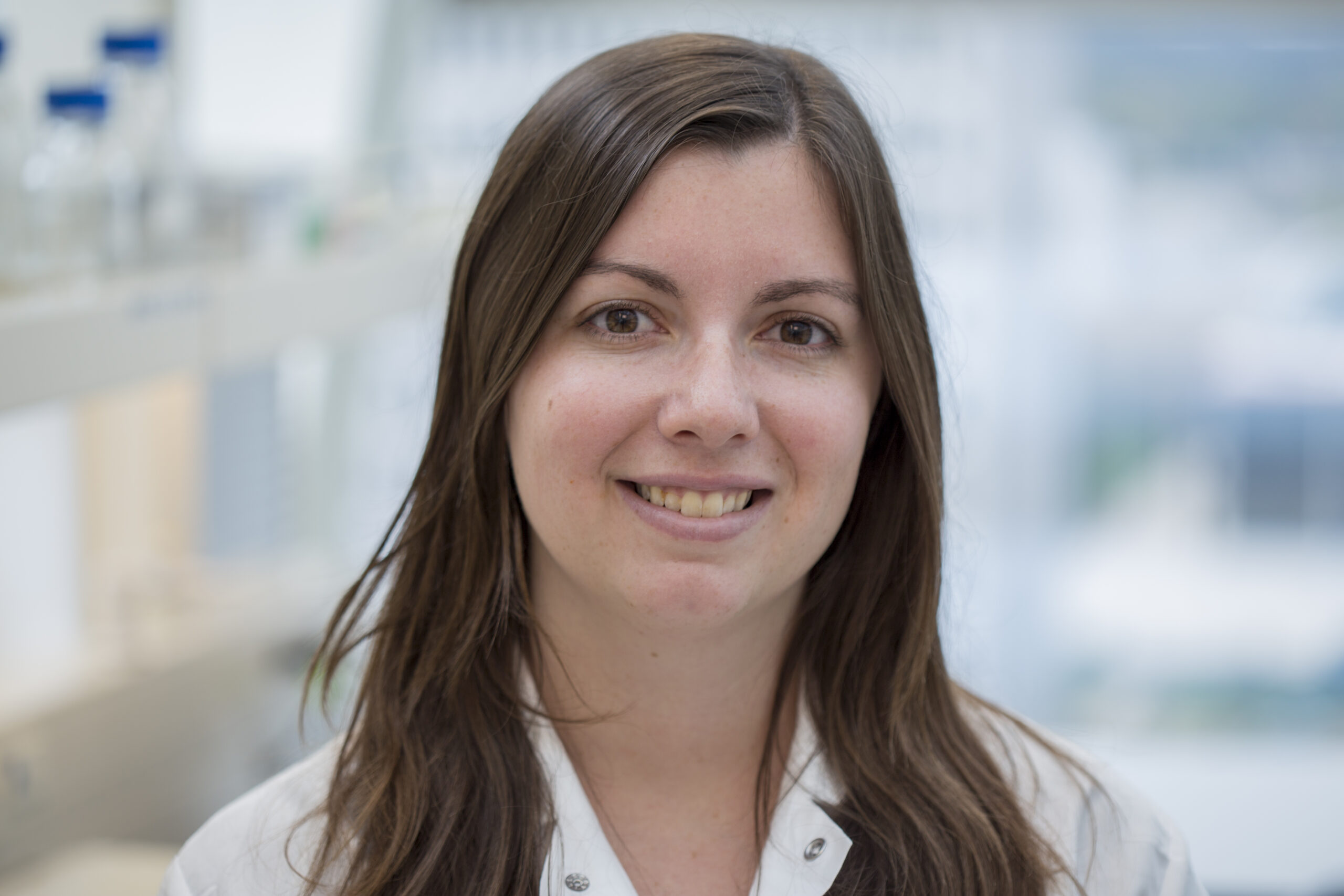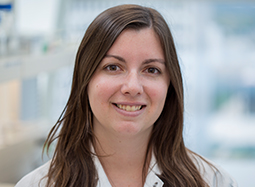Graduate student spotlight: Investigating a cancer linked to a rare genetic disorder
September 15, 2020

Throughout the year, we highlight Van Andel Institute Graduate School’s doctoral students. This month features Lauren McGee, a student in the lab of Dr. Matt Steensma. Lauren studies a tough-to-treat cancer linked to a rare genetic disorder in hopes of developing new therapies.
Q: What do you study?
LM: I work on a cancer that arises from a genetic disorder called Neurofibromatosis Type 1, which causes dysregulation of an important cell growth pathway. This cancer, called malignant peripheral nerve sheath tumor (MPNST), has no chemotherapeutic options and quickly develops resistance to any initial treatments that might seem to work at first. The goal of my thesis project is to understand how this dysregulation leads to the development of treatment resistance, and to identify new pathways that can be targeted to improve the outcome of patients with MPNST.

Q: Did you take time off before starting your Ph.D. degree or come directly from an undergraduate or master’s degree program?
LM: I was a post-baccalaureate fellow and then a contract scientist at the National Center for Advancing Translational Science (NCATS) at the National Institutes of Health in Rockville, Maryland, for three years between my undergrad and starting at Van Andel Institute. I’m incredibly grateful for that time; I worked with amazing people and I learned how to be a full-time scientist, which has really helped me be successful in graduate school.
Q: Why did you choose Van Andel Institute Graduate School?
LM: I really enjoyed the small feel of the Institute, and the small size of the graduate program specifically. I think having these smaller-sized classes helps foster a community within the graduate program and ensures that no one is really a stranger here. The problem-based learning was another draw, especially taking time off to work in the “real world” per se; this approach felt very similar to how I was learning about my projects at the NIH, and in general felt like a more natural progression of knowledge and understanding of the material. I also liked that students were supported by the graduate program and not just the principal investigators (PI). Other places I interviewed warned that the PI you might want to work with may not have funding, so you would have to find another lab to join. That isn’t an issue here, which eased a lot of stress.
Q: What is your favorite stress-reduction technique?
LM: My favorite stress-reduction techniques are running and cross-stitching. Both are pretty meditative and can clear my head. Productively stabbing fabric 1,000-plus times to make art takes a lot of concentration and patience, and there’s something really satisfying about seeing the end result.
Q: If you hadn’t been admitted to graduate school, what do you think you would be doing right now?
LM: If I couldn’t be in the biological sciences, I would probably be a meteorologist. We already joke I’m the lab weather person, so it feels like a natural extension!
Interested in Van Andel Institute Graduate School? Learn more at vaigs.vai.org and read previous student spotlights here.